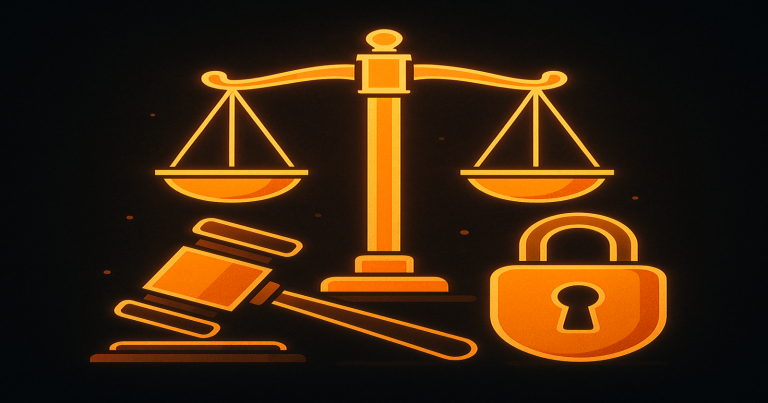The phrase enforceable by law refers to an agreement or promise that meets all the required legal criteria and is legally binding in a court of law. Simply put, when two or more parties agree that the law recognises and protects, the agreement becomes enforceable by law. This is essential in personal and professional settings, as it offers legal protection and ensures that all parties involved are obligated to fulfil their duties. If one party does not follow the terms, the other can seek legal remedies through the court. This concept forms the basis of contract law and is central to business transactions and legal dealings.
What Does Enforceable by Law Mean?
The term enforceable by law means that an agreement is not just a mutual promise but is backed by the legal system. It can be brought before a court if one party fails to fulfil their obligations. For an agreement to be enforceable, it must follow all the rules in the Indian Contract Act, 1872. This includes elements like a proper offer, apparent acceptance, legal purpose, valid consideration, and the capacity of the parties. Agreements that are not enforceable lack legal standing. For example, a casual promise between friends to go shopping together is not enforceable. However, a written rental agreement signed between a landlord and tenant is enforceable by law because it includes all legal elements and can be upheld in court.

Agreement vs Contract
Many people use the words agreement and contract interchangeably, but they are not the same in legal terms. An agreement is a mutual understanding between parties. It becomes a contract only when it is enforceable by law.
A contract is a refined form of agreement. It includes a legal obligation that binds both parties. For example, agreeing to pay someone for delivering goods is an agreement. When this agreement is documented, includes valid consideration, and is made with legal intent, it becomes a contract.
Legal Table: Agreement vs Contract
| Element | Agreement | Contract |
| Definition | Mutual understanding or arrangement | Legal agreement backed by law |
| Legal Standing | May or may not be legal | Always legal and enforceable |
| Enforceable | Not always enforceable | Fully enforceable in a court of law |
| Example | Planning a holiday with a friend | Buying a house with a signed deed |
Thus, all contracts are agreements, but not all agreements are contracts.
Essentials of a Valid Contract
To ensure an agreement becomes a contract enforceable by law, it must fulfil specific legal requirements. These essentials act as the building blocks of a valid contract. The contract may be declared void or voidable without even one of these. The essential elements of a valid contract are as follows:-
Legal Requirements for Enforceable Contracts
- Offer and Acceptance: One party must make an offer, and the other must accept it unconditionally. This forms the base of the contract.
- Free Consent: The parties must enter into the contract with free will. Consent taken under pressure, fraud, or misrepresentation makes the contract voidable.
- Lawful Consideration: Both parties must give something of value in return. This could be money, services, or goods. A contract without consideration is not legally binding.
- Lawful Object: The purpose of the agreement must be legal. A contract to carry out illegal activities is void.
- Capacity to Contract: All parties should be legally capable. This means they should be adults (18+), mentally stable, and not legally disqualified.
- Legal Formalities: Some agreements, like property sales or lease agreements, must be in writing, stamped, and registered under the law.
Each of these elements must be present for a contract to be enforceable by law. For example, if a 16-year-old signs a business contract, it is invalid due to a lack of capacity.
Types of Agreements: Legal and Non-Legal
Not all agreements carry legal value. Some are casual and personal, while others have commercial and legal importance. Knowing the type of agreement helps determine whether it is enforceable by law.
Various Types of Agreements Explained
- Legal Agreements: These involve business, money, or property and are intended to create legal obligations. These agreements are enforceable.
- Social Agreements: These are based on personal relations and carry no legal weight. For example, a promise to attend a birthday party.
- Express Agreements: These are clearly stated either verbally or in writing. When all legal elements are present, they become contracts.
- Implied Agreements: These are formed by actions rather than words. For example, when you sit in a taxi, there’s an implied agreement to pay the fare.
- Void Agreements: These are not recognised by law and are unenforceable from the beginning. An example is an agreement to commit a crime.
- Voidable Agreements: These are valid but can be cancelled by one of the parties under certain conditions, such as fraud or coercion.
Each agreement’s enforceability depends on whether it meets legal criteria and has lawful content.
Legal Examples of Enforceable Contracts
Understanding that it is enforceable by law becomes clearer through examples that apply to daily life. These examples show how courts uphold contracts when terms are breached.
Examples of Contracts Recognised by Law
- Job Contracts: A signed employment contract outlines the salary, role, and working hours. The employee can take legal action if the employer does not pay on time.
- Rental Agreements: A written lease agreement between a landlord and tenant includes rent terms, property use, and duration. If the tenant refuses to vacate, the landlord can go to court.
- Loan Agreements: Banks and borrowers sign loan contracts that detail repayment terms. Non-repayment can lead to legal recovery actions.
- Sales Contracts: When a customer buys a product with warranty terms, the seller is legally bound to honour those terms.
These examples highlight the importance of clarity, mutual consent, and legal intention in making contracts enforceable by law.
Why Enforceability Matters in Personal and Business Deals?
Whether it’s everyday dealings or big business deals, contracts enforceable by law build trust, reduce risks, and ensure accountability. Businesses cannot function smoothly without enforceable contracts, and individuals can be taken advantage of.
Importance in Real Life
- Business Security: Contracts protect companies from fraud and clearly define roles and responsibilities.
- Consumer Rights: When customers buy goods or services, legal agreements help protect their rights.
- Dispute Resolution: When disagreements occur, a legal contract helps courts determine who is right and what remedy is due.
In short, enforceable contracts provide a legal backbone for all economic and personal interactions.
Enforceable by Law FAQs
What does enforceable by law mean?
It means an agreement can be upheld in court. If one party breaks it, the other can seek legal remedies.
What makes a contract enforceable?
A valid offer, acceptance, lawful consideration, legal purpose, capacity of parties, and fulfilment of legal formalities make a contract enforceable by law.
Are all agreements enforceable by law?
No, only agreements that meet legal requirements like intention, consideration, and legality become enforceable contracts.
What is the difference between a void and a voidable agreement?
A void agreement has no legal standing from the start. A voidable agreement remains valid until one party cancels it due to specific flaws.
Is a verbal agreement enforceable by law?
Yes, if all legal elements are present. However, written agreements are easier to prove in court.


